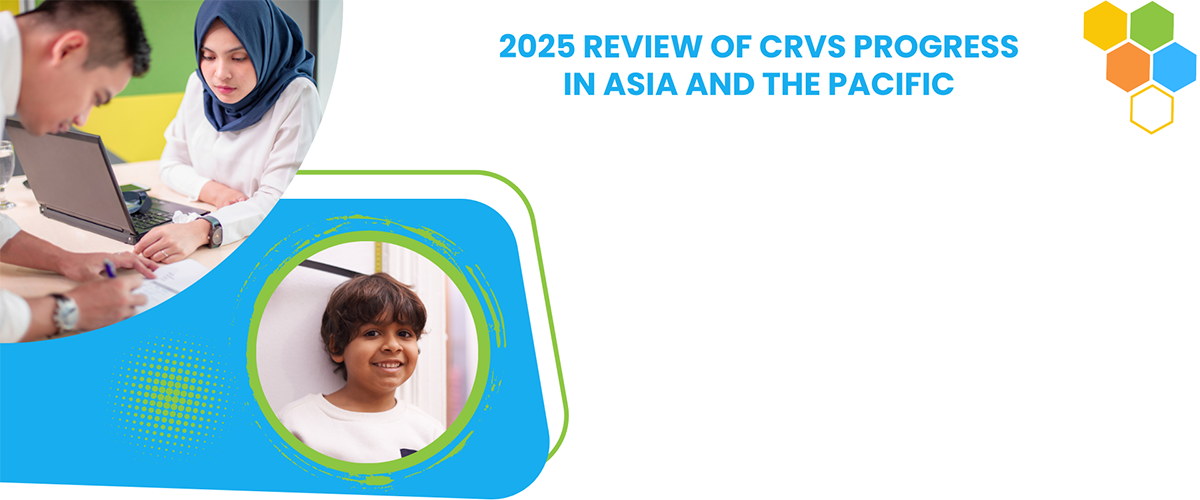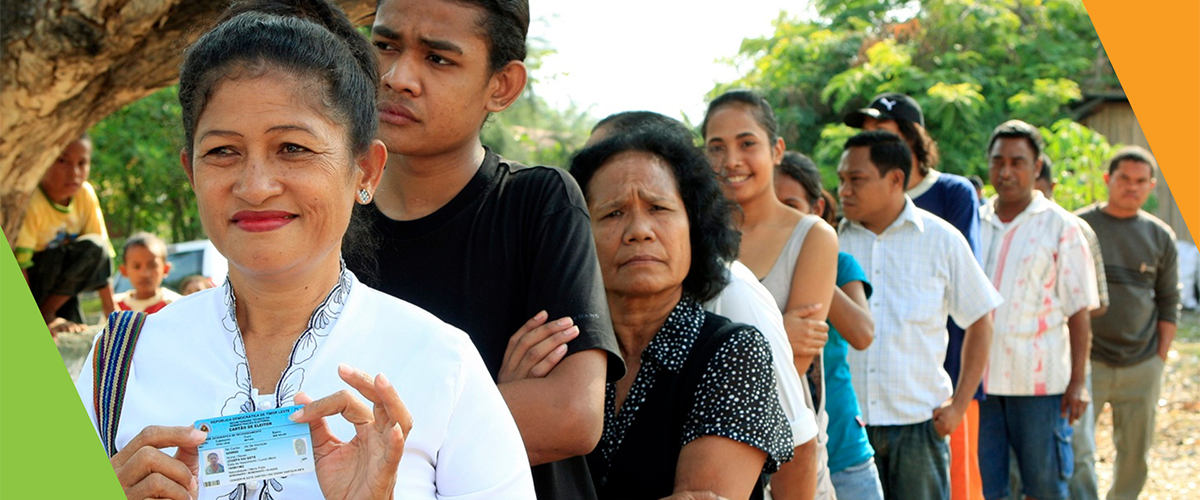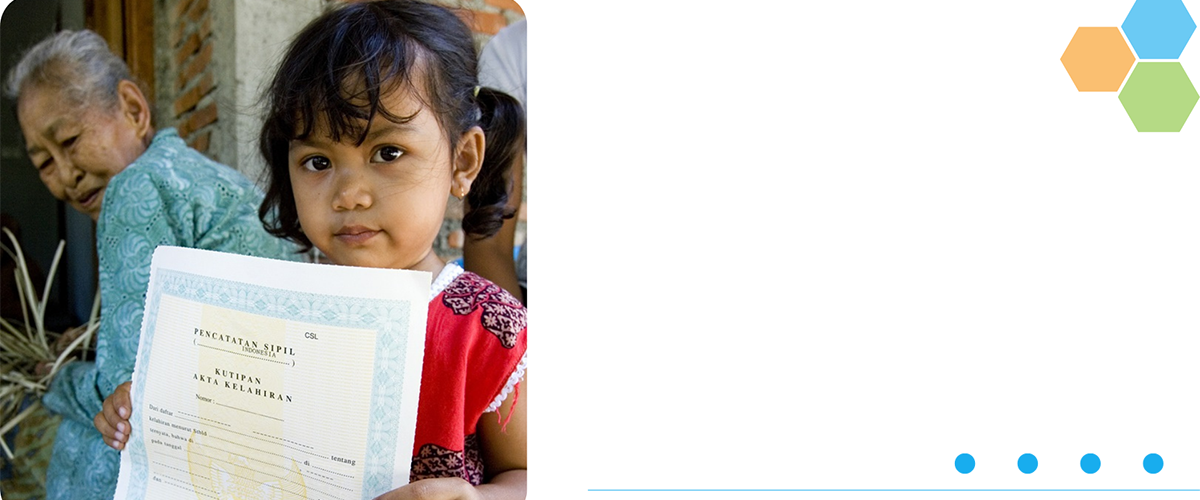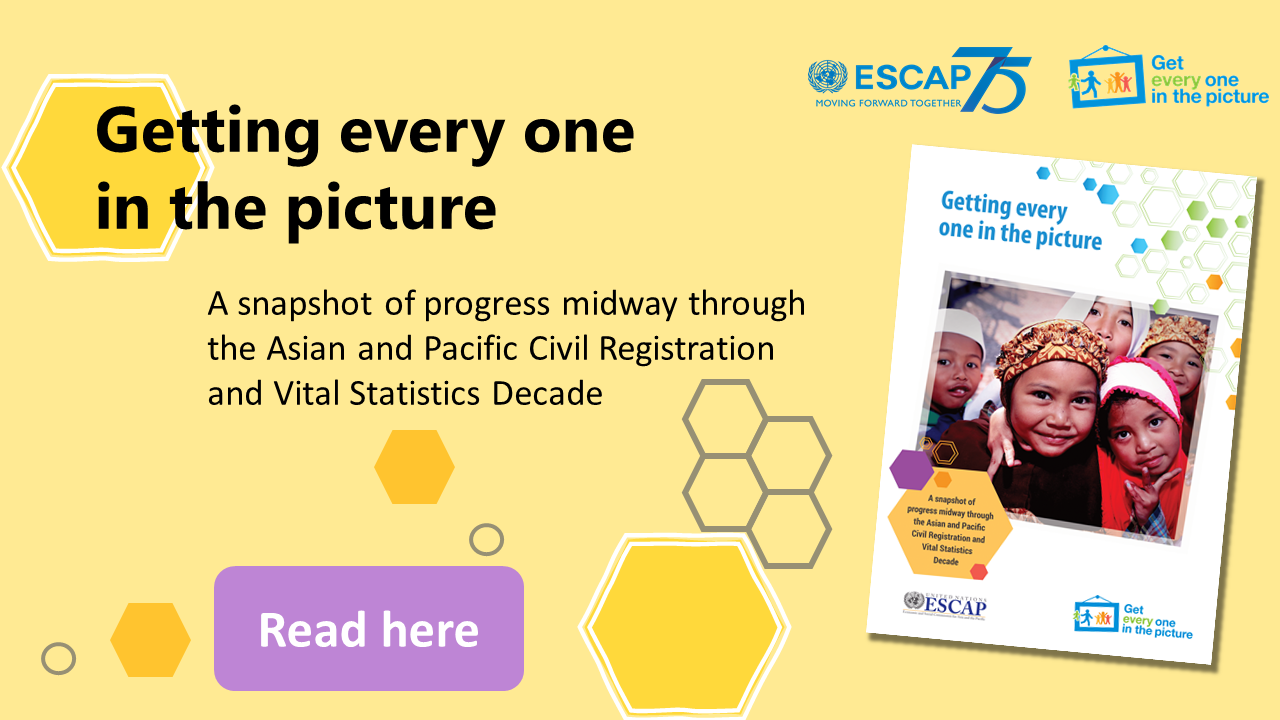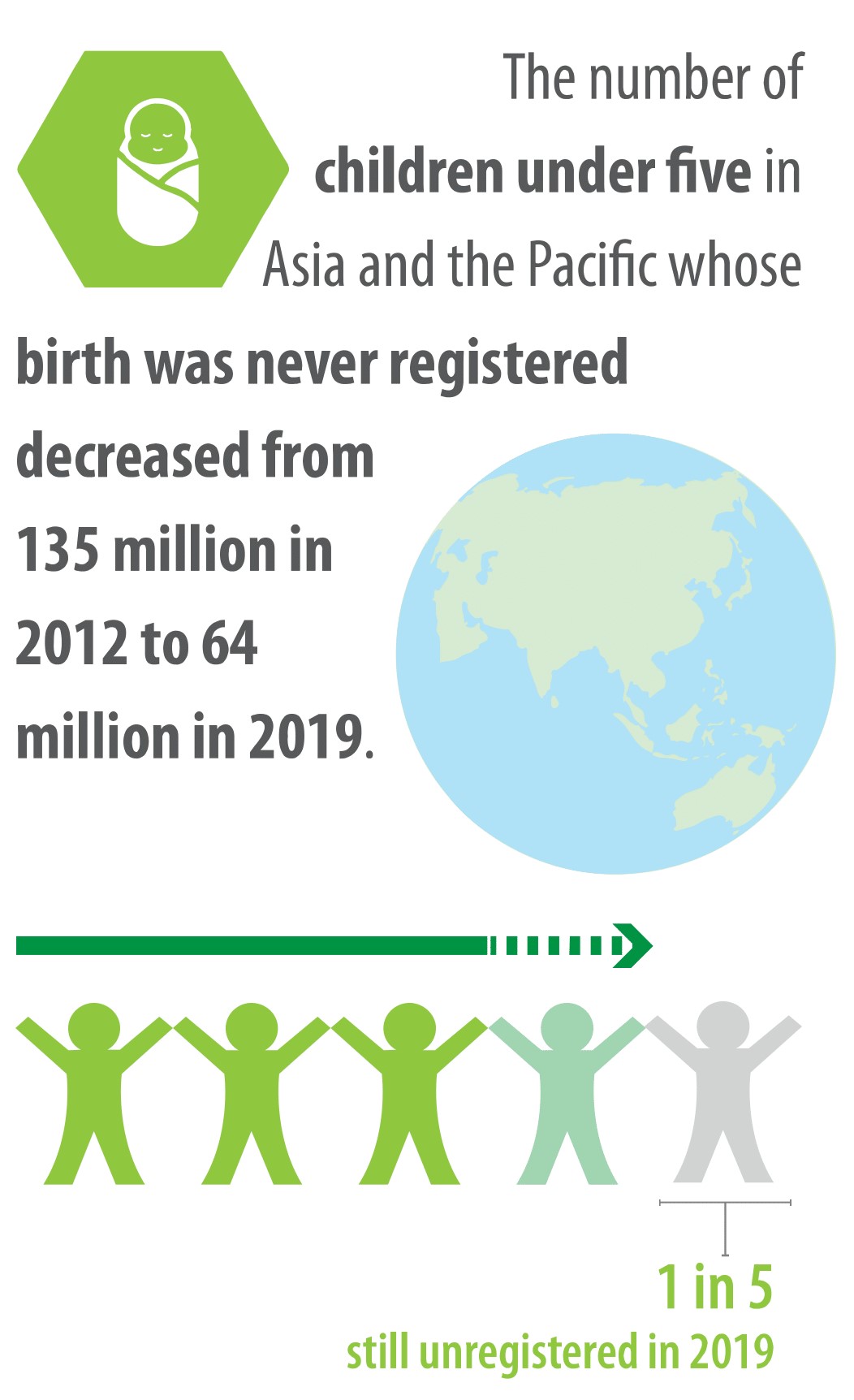 |
For more information on the progresses made since the beginning of the Decade and the challenges remaining to achieve universal registration, go to our midterm report:
In advance of the 6th Asia-Pacific Forum on Sustainable Development (APFSD), the Asia-Pacific People's Forum, with the theme of 'Harnessing the Power of Peoples’ Movements for a Fairer, Just and Equitable Asia Pacific', brought together relevant stakeholders to review civil society organization (CSO) contributions to regional CRVS development, share lessons learned from assisting countries in meeting the targets for both the 2030 Agenda and the CRVS Regional Action Framework, and prioritize areas for continued engagement.
In support of these activities, the CRVS team in ESCAP's Stats Division co-hosted a side event with World Vision entitled, "Working together to 'Get Every One in the Picture' - CSO engagement for the shared vision on civil registration and vital statistics in Asia and the Pacific".
The agenda and presentations are now available for review.
The second Ministerial Conference on CRVS in Asia and the Pacific is being organized for 2020 to review the progress made in the implementation of the Regional Action Framework on CRVS. As a first step, ESCAP recently issued etters to all seats of government in Asia and the Pacific asking them (a) to appoint a National CRVS focal point and (b) to nominate a representative to serve on the Regional Steering Group for CRVS in Asia and the Pacific.
Appointment or confirmation of the national CRVS focal point
As outlined in the Regional Action Framework on CRVS in Asia and the Pacific, national midterm progress reports are to be submitted to ESCAP over the course of the 2019 calendar year. Based on these reports, a midterm review will be conducted at the second Ministerial Conference in 2020. To collect the national midterm progress reports from countries, ESCAP prepared a standard questionnaire to be shared with the national CRVS focal points. To ensure the midterm questionnaire is sent to the correct persons in the countries, ESCAP asked seats of government to confirm or appoint a national CRVS focal point.
Nomination to the Regional Steering Group for CRVS in Asia and the Pacific
Since 2015, the Regional Steering Group, comprised of 30 members, has guided the implementation of the Regional Action Framework and acted as the custodian of the Asia and Pacific CRVS Decade (2015-2024). It also provided strategic guidance to governments and development partners for fostering cooperation and coordination at national and regional levels. However, as we are approaching the mid-point of the CRVS Decade, the membership of the Regional Steering Group will be renewed. In accordance with the terms of reference, ESCAP opened the nomination process again and asked all seats of government to nominate a representative to serve as a member for the 2020-2024 period. The future members will be particularly involved in the preparations for the second Ministerial Conference on CRVS in 2020.
The nominations must be sent to ESCAP no later than Monday, 1 April 2019. The final decision on the membership will be based upon the criteria listed in the Terms of Reference of the Regional Steering Group. The new members will serve from January 2020 and will be actively involved in the preparation to the 2020 Ministerial Conference. For more information on the Regional Steering group please go to the following link: http://www.getinthepicture.org/regional-steering-group-crvs-asia-and-pacific.
Next Steps
April-May 2019: ESCAP will disseminate the midterm questionnaire to all national CRVS focal points.
27-31 May 2019: Presentation of the new list of Regional Steering Group members to the 75th Session Economic and Social Commission for Asia and the Pacific for approval.
September 2019: Fifth meeting of the Regional Steering Group, with a strong focus on the technical discussions for the preparation of the 2020 Ministerial Conference.
Second Half 2020: Second Ministerial Conference on CRVS in Asia and the Pacific.
The purpose of this research is to;
a. Inform programme design work to support the development of censuses in South Asia.
b. Examine evidence on civil registration as an ongoing issue in South Asia to potentially identify from evidence where there is an opportunity for DFID to make a real difference to those who have no form of registration. Further, where due to the complicated nature of factors surrounding civil registration the time might not be right for an intervention.
c. It would also inform thinking and understanding of national identity databases including understanding the risks and benefits of supporting this work.
Please note that Tenders must be received by 1700 hrs (GMT) on 13th March 2019 and be valid for 3 months.
Tenders received after the due time and date will not be considered.
The Centre of Excellence (COE) for CRVS Systems, in partnership with Open Data Watch, recently launched a knowledge brief series aiming to uncover gender bias and barriers, share case studies and emerging findings, as well as recommend priority areas and solutions.
This series provides support for CRVS stakeholders by inspiring action and promoting the adoption of good practices. It builds upon the outcomes of the COE event, Making the Invisible Visible: CRVS as a Basis to Meeting the 2030 Gender Agenda, as well as a side event at the United Nations World Data Forum in October 2018 entitled, Civil Registration as a Tool for Women’s Empowerment.
Ultimately, the series will produce 12 separate papers across 3 substantive areas. The papers will be authored by experts in the field and published on a quarterly basis in 2019. Themes and topics will include gender data gaps, social protection, legal frameworks, and the protection of the rights of women and girls.
Between 28 - 30 January, in Bangkok, Thailand, Vital Strategies and the United Nations Economic and Social Commission for Asia and the Pacific (ESCAP) organized a workshop for stakeholders responsible for the CRVS and digital ID ecosystem. The workshop, facilitated by a world-leading expert on BPI for CRVS systems, allowed facilitators to present and share a business process improvement approach to CRVS systems transformation, share experiences from applying the approach in other countries, as well as provide participants an initial, hands-on experience with the tools used for Business Process Improvement and introduce them to the Vital Strategies’ developed CRVS legal review tool and its relationship to the implementation of the BPI approach.
For accessing the workshop's resources please visit http://www.getinthepicture.org/resource/resources-workshop-transforming-....
|

